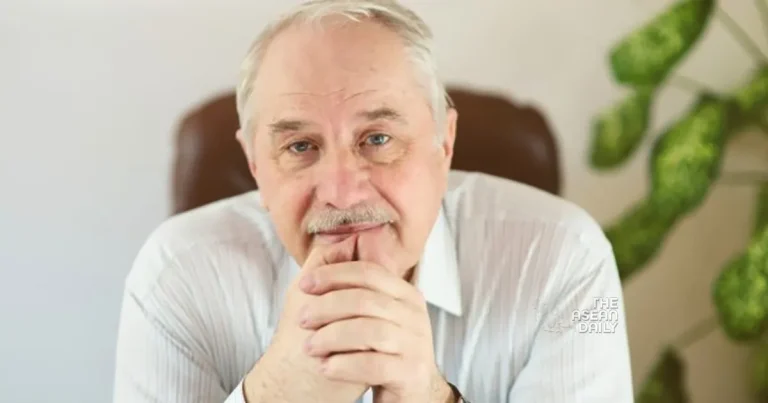22-5-2024 (MOSCOW) In a chilling development that has sent shockwaves through the scientific community, Russian physicist Anatoly Maslov has been convicted of treason and sentenced to an astonishing 14 years in a penal colony. The verdict, handed down on Tuesday (May 21) in St. Petersburg, marks the latest in a series of cases targeting experts working on the science underpinning Russia’s development of hypersonic missiles.
The 77-year-old Maslov, his white hair a testament to his years of dedication to his field, stood stoically in a glass box in the courtroom, listening attentively without betraying any emotion as the judge read the verdict. This trial, shrouded in secrecy and closed to the press, came after Maslov had vehemently protested his innocence.
Maslov is one of three scientists from the same Siberian institute, all specialists in hypersonics, who have been arrested since 2022 on treason charges. The other two, Alexander Shiplyuk and Valery Zvegintsev, are currently awaiting trial, their fates hanging in the balance.
The trio, along with a number of other scientists accused in similar cases, had been conducting theoretical work in areas relevant to the development of hypersonic missiles – cutting-edge weapons capable of carrying payloads at up to 10 times the speed of sound, designed to penetrate air-defence systems with devastating precision.
President Vladimir Putin has repeatedly asserted that Russia is a world leader in these advanced weapons, which the nation has acknowledged using in the ongoing Ukraine war.
Yevgeny Smirnov, a lawyer from Pervy Otdel (First Department), an association specialising in defending individuals in cases of treason and espionage, shed light on the charges levelled against the accused scientists. He revealed that the allegations against them were similar – divulging information considered a state secret while participating in an international conference or research.
“Any conviction against Maslov is a gross violation of the law,” Smirnov declared. “I am sure that Maslov is not guilty of the acts accused of him and is a victim of the policies of the Russian authorities.”
Maslov’s lawyer, Olga Dinze, shared the shock and disbelief felt by her client upon hearing the sentence. Despite his serious heart problems, Maslov is “holding firm” and plans to appeal the verdict, she told reporters.
Dinze painted a portrait of Maslov as a man who lived modestly and had dedicated his life to Russian science, turning down numerous invitations to leave the country and join a western university.
In a rare open letter published last year, colleagues at the Siberian institute vouched for Maslov’s innocence, along with that of Shiplyuk and Zvegintsev. They stated that the scientific papers the trio had published or presented at international conferences had been thoroughly vetted to ensure they did not include restricted information. The colleagues expressed concern that these cases were having a chilling effect on Russian academia, making it impossible for scientists to do their jobs.
In response, the Kremlin had stated at the time that the men faced “very serious accusations” and their cases were a matter for the security services.
According to Dinze, Maslov came under investigation after a defendant in another case testified against him in exchange for a shorter sentence of seven years – an apparent reference to the jailing of Alexander Kuranov, another scientist in the same field, who was sentenced last month.
Dinze expressed regret and irony over the spate of arrests of top Russian academics by the FSB security service, particularly at a time when Putin was speaking of the need to invest in Russian science.
“Maybe the right hand doesn’t know what the left hand is doing,” she remarked.
Smirnov of Pervy Otdel told Reuters: “It is obvious that the persecution of scientists is an exclusively political step by the Russian authorities, by which they seek to show that intelligence services around the world are trying to steal the secrets of Russian weapons.”
However, Smirnov clarified that the detained scientists were not working directly on weapons but rather studying physical processes associated with high speeds. He emphasized that the so-called secrets they had allegedly passed on were “openly published and available to anyone”.




